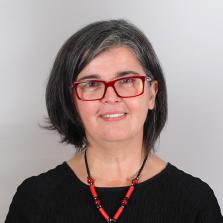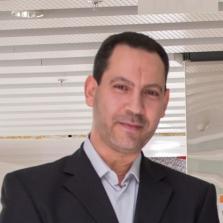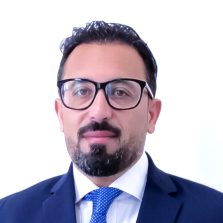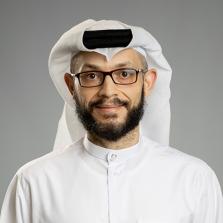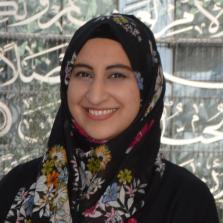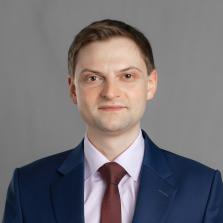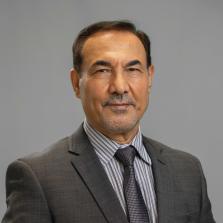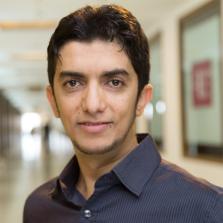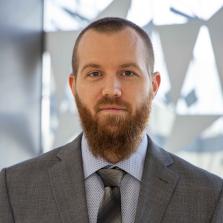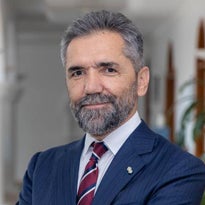General
-

About HBKU
Discover what makes HBKU an innovation-based entrepreneurial university.
-

HBKU Leadership
Meet the leadership making HBKU a transformative place to study and work.
-

People
Read about the people who create a unique environment for learning and research.
-

Career Opportunities
Join an innovative organization and the people who are shaping tomorrow.
Admissions
Join a student body shaping tomorrow by enrolling in one of our innovative degree programs.
EXPLORE OUR PROGRAMSOverview

Our students, faculty, and scholars actively engage in innovative solutions to the world’s problems within multi-disciplinary programs.
Life at HBKU
-

Overview
Life at HBKU involves a transformative learning culture that engages students in and out of the classroom, developing innovative entrepreneurs and global citizens within Qatar and beyond.
-

Multaqa (Education City Student Center)
A student-centered and educationally purposeful facility, the Education City Student Center is the “majlis” of Education City and serves as the hub for both formal and informal events and activities.
-

Housing at Education City
With housing that is accessible, sustainable, and affordable, there are plenty of reasons to consider living in Education City.
Upcoming Events
-
01 Oct
Qatar International Cybersecurity Contes...
All Day 08:00 AM-08:00 AM, Minaretein (College of Islamic Studies building), Education City
-
01 Oct
Contest start date
All Day 04:45 PM-04:45 PM
Overview
The Signature Research Program (SRP) is a new platform launched by the Office of the Vice President for Research (OVPR) aimed at promoting innovative and impactful research through cross-entity interdisciplinary collaboration within HBKU and beyond.
Through a shared vision, objectives, framework and resources (see diagram below), the program aims to develop an ongoing set of well-integrated research clusters that will carve out distinctive research areas for HBKU in the region and internationally, and to make HBKU a hub to attract and develop talent.

 Research Focus
Research Focus
- Establish research excellence in niche areas
- Integrate a set of interdisciplinary projects with shared focus and objectives
- Build competitiveness in research
 Collaboration
Collaboration
- Build networks within and outside HBKU focused on specific research
- Attract local and international collaborators
 Resource Planning and Optimization
Resource Planning and Optimization
- Better resource allocation based on priorities and research quality
- Concentration of resources
- Resource sharing
- Create a sustainable funding model to support priority research
 Capacity Building
Capacity Building
- Build competitive research capacity in focused areas
- Attract and develop talent
- Enhance HBKU’s reputation
Cycle 1 Overview
It is in our core mission to support Qatar’s society to prosper and strengthen its cultural roots and identity. As the world continues to change at an accelerating rate, social progress is increasingly essential to protect our heritage, culture, community, and the future of our children.
Our research focus in social progress cuts across five key areas:
- Arabic Language, Culture and Heritage
- Social Responsibility
- Social Inclusion
- Ethics and Policy
- Family Cohesion
Cycle 1 of the Signature Research Program brings together expertise and knowledge from four HBKU colleges: College of Humanities and Social Sciences, College of Public Policy, College of Law and College of Islamic Studies. HBKU collaborates with many local and international institutes and organizations to tackle pressing issues that cut across priority areas under social progress.
SRP Cluster 1
Managing Social Transformation in Qatar: Risks, Trends and Future Trajectories
The aim is to produce strategic insights that contribute to an understanding of the forces and trends shaping the future trajectories of Qatari society across socio-cultural and socio-economic domains.
The SRP Cluster 1 will examine four key strategic areas:
- Higher Education: Participation, skills and training, quality, and international competitiveness
- Public Health & Technology: Capacity, service delivery, gaps, and inefficiencies
- Culture and transformation: Identity, language, and cultural ‘stresses’
- Social welfare and protection: Social inclusion, elderly, housing, disability
Major outputs include the identification of:
- Sectoral trends, highlighting emerging key threats and potential fissure points
- Policy pathways, strategic choices, and decision points
- Potential ‘shocks’ and impact assessment
- Legal and governance gaps, including regulatory and policy gaps
Team members


SRP Cluster 2
Explorations in Developing an HBKU Index of Social Cohesion
The International Social Cohesiveness Index falls short of accounting for different contexts and variables. This research cluster, therefore, aims at developing an HBKU Index of an interdisciplinary construct that can fill in the gaps and provide an index of this multifaceted construct that could be used in Qatar and the region.
The SRP Cluster 2 covers three domains:
- The economic domain: Exclusion, equality, and inequality
- The political domain: Legitimacy/illegitimacy via trust in institutions, participation/passivity via social capital or political participation
- The sociocultural domain: Acceptance/rejection via solidarity as well as affiliation/isolate via socio cultural participation
Major outputs would include:
- Review paper on social cohesion: An Islamic perspective
- Social Media Dataset annotated for misinformation, polarization, and propaganda
- HBKU-Social Cohesion Index Report
Team members

Cycle 2 Overview
Cycle 2 of the SRP focuses on artificial intelligence (AI), one of HBKU’s focus areas. It prioritizes Generative AI (GenAI), which is rapidly transforming our world and has the potential to address some of humanity’s most pressing challenges, including sustainable development, precision medicine, and personalized education. However, GenAI also poses new challenges, such as the potential for bias, misuse, and unintended consequences.
HBKU researchers in multidisciplinary, cross-entity teams will focus on the following topics:
- AI for Personalized Education
- Safe, Responsible, and Ethical AI
- AI for Science
Project 1: Advancing Qatar's AI Landscape: Developing an Arabic-Centric and Ethically-Aligned Large Language Model
This project aims to develop a robust, ethically-aligned Large Language Model (LLM) that embodies the Arabic and Islamic identity. Our approach will build on Arabic-centric LLMs that are pre-trained with Arabic language text, by customizing the alignment and fine-tuning phases to reflect the unique linguistic and cultural context of Qatar more accurately. This effort seeks to create a new standard in AI, focusing on technology that is not only cutting-edge but also culturally and ethically relevant.
The study will focus on four primary objectives:
- Creating a dataset for multiplex ethics
- Developing alignment methods compatible with multiplexity
- Detecting attacks targeting human-value alignment of LLMs
- Showcasing diverse application scenarios
Major outputs include:
- Dataset for multiplex ethics
- New alignment methods
- Fine-tuned models for different applications
- Publications
- Teaching material for multiplex AI ethics
Project 2: AI-EDAPT: Artificial Intelligence for Educational Adaptation, Personalization, and Transformation
The project aims to advance the understanding and implementation of GenAI tools in higher education settings, focusing on enhancing personalized learning experiences. By developing a system that uses LLMs, such as LLaMA2 and ChatGPT, to monitor and analyze student interactions with GenAI tools, it seeks to improve teaching methods and learning outcomes and tailor educational practices to individual learning styles.
The study focuses on:
- Developing and integrating an innovative system based on open-source LLM to monitor and analyze students' interactions with GenAI tools within the educational context of HBKU.
- Evaluating and analyzing the impact of ChatGPT1 (e.g., GPT-4, LLaMa2) on a) course design and teaching activities, b) student learning and critical thinking, c) the relationship between student learning styles and their use of ChatGPT
- Providing empirical evidence and insights into the effective use of ChatGPT as EduLLM in education, contributing to developing guidelines and best practices for its implementation.
- Disseminating the findings and recommendations to the broader educational and academic communities through workshops, publications, and presentations.
Major outputs include:
- Application to monitor student interactions with GenAI tools
- Analysis reports on student interactions
- Ethical guidelines and best practices
- Publications
- Resources



